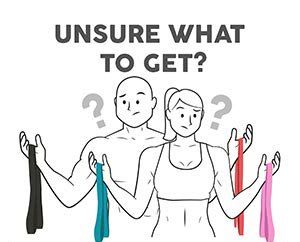Finding good sources of essential nutrients like Omega-3 fatty acids can be tough. Supplements like fish oil and krill can help but I believe natural whole food sources of essential vitamins, minerals, and nutrients are superior and more cost effective.
Before I jump in and start listing sources, let me talk a little about Omega-3 or n-3 fatty acids. First off, Omega-3's are considered essential fatty acids (EFA). We need EFA's for good health and they can't be synthesized by the body. In addition to needing Omega-3, we also need Omega-6. It's worth noting that there is also an Omega-9 but it's not considered essential and can be created from unsaturated fats by the body.
Most of us end up consuming a higher ratio of Omega-6 fatty acids to Omega-3's. This has been linked to inflammation which reportedly causes all kinds of issues with health. From the research that has been done, it looks like at minimum we should be getting at least twice the amount of Omega-3's as 6's. Typically this ratio is 16 to 1 in favor of the Omega-6's.
One of the many reasons we tend to over-consume Omega-6's is due to the fact they are in almost everything we eat in the Standard American Diet (SAD). Common sources of Omega-6's are vegetable oils and believe-it-or-not chicken.
As I mentioned before you can use supplements like fish oil or even krill oil. I just question the bioavailability of the EFA in that form and would rather take my chances on whole food.
Here are 10 great sources of Omega-3's fatty acids:
- Wild-caught Sardines - I prefer wild-caught which can be a little pricey but hands down sardines are THE best source for Omega-3 EFA's
- Wild-caught Salmon - salmon is another great source - avoid farm-raised salmon as they are grain fed which makes the level of Omega-6's higher and the level of Omega-3's much lower
- Grass-fed meat - aside from the advantages of no hormones, grass-fed cows contain around a 3:1 ratio of Omega-3's to 6's and it tastes better than CAFO cows. Watch out for grass-finished which is overpriced with none of the benefits.
- Grass-fed butter - this butter comes from cream from cows that are grass-fed. This can be tricky to find in stores but look for Kerrygold.
- Grass-fed cheese - just like grass-fed butter this comes from cream from grass-fed cows. Again, this can be tricky to find in stores but look for Kerrygold.
- Organic free-range eggs - these are rich in Omega-3's due to the free-range diet and are great when paired with grass-fed steak
- Walnuts - I love walnuts
- Organic Kidney beans - rich in fiber and guess what Omega-3's
- Ground Flax seeds - I would avoid flax seed oil and it becomes rancid very easily. Just grind organic flax seed in your coffee grinder and sprinkle on your food or throw in a protein shake
- Chia seed - yes, this is the same seed you use to make Chia pets. These are a really great source of Omega-3 and fiber. I soak these in water and drink them down. Kind of like raw eggs or oysters on the half-shell.
The next question that comes to mind, is how much Omega-3's does one need? From my research the jury is still out on this one and I will say that if you are reading this then most likely you need a lot more than you are currently consuming. Simply changing from grain-fed to grass-fed beef and having salmon once a week is a great start.
This was a quick primer on Omega-3 and 6 EFA's. I encourage the reader to do some additional research to get a better understanding of the pros and cons of each.
Shawn W Knight is the man behind the curtain at Bald and Angry. He writes articles on a variety of topics including fitness and health.



